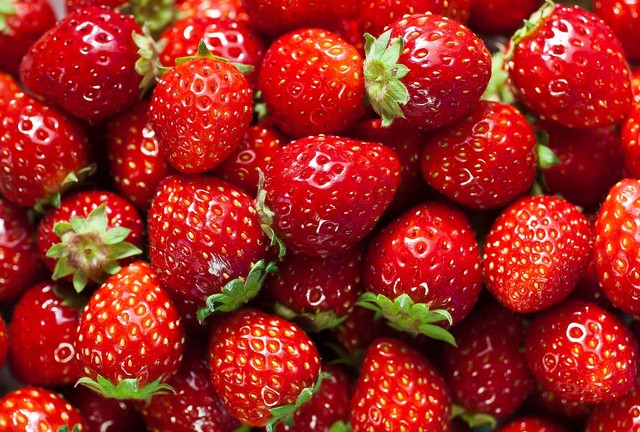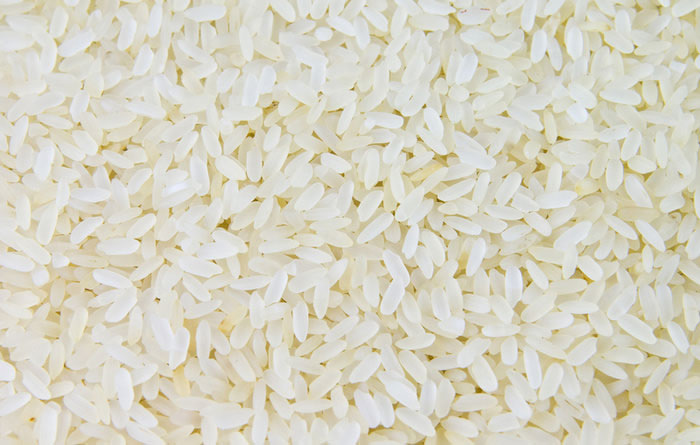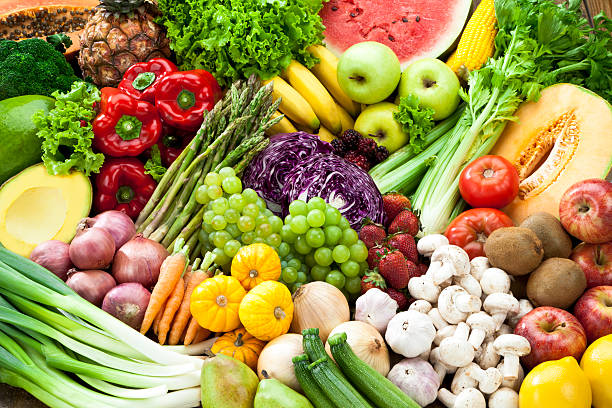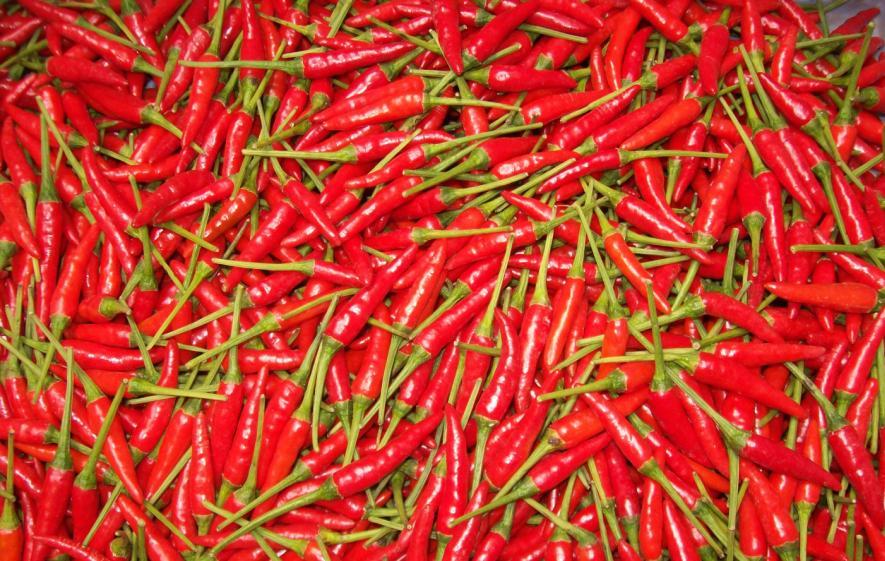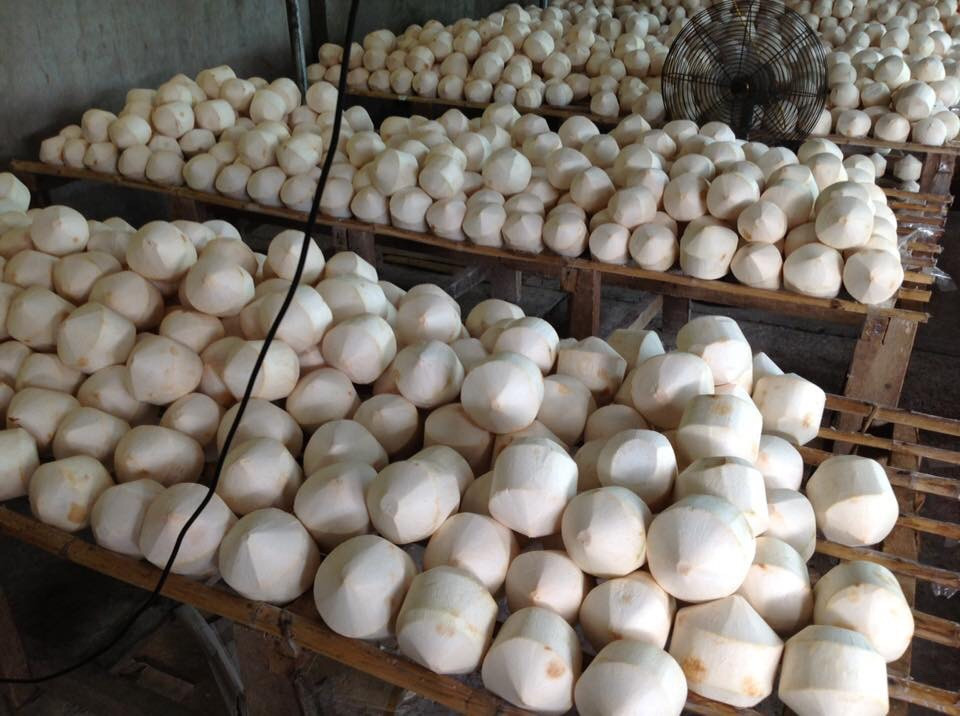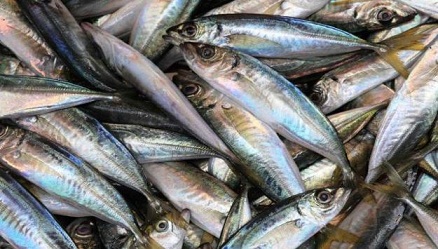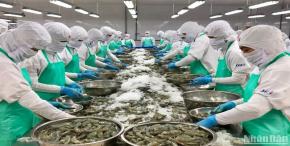VietNamNet Bridge – Viet Nam aims to improve agricultural products by implementing technology, but capital, land and infrastructure are major obstacles.
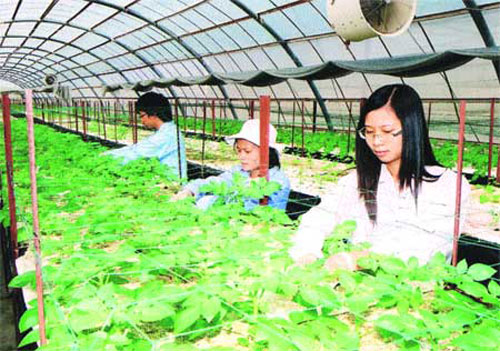 |
|
Improvements: The Agriculture Biology Institute has applied technology to grow potatoes with high productivity and quality that are also disease-free. |
Applying technology to the agriculture sector is a key part of Viet Nam's socio-economic development strategy. However, the country faces a number of challenges in attracting investors.
"The domestic agricultural sector will lose out on opportunities for further development and find it more difficult to integrate into the world market if it does not apply technology to production," said Thai Huong, chairwoman of TH Group. One of the country's leading pasteurised milk producers, TH Group's revenue reached VND3.5 trillion (US$165 million) in 2013 and is expected to soar to VND23 trillion ($1.1 billion) in 2017.
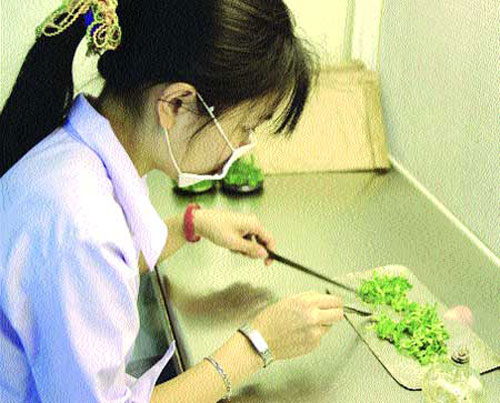 |
|
Good genes: An employee at the Agriculture Genetics Institute studies vegetable genes. |
Nguyen Tuan Anh, head of the country's programme for new rural development, said Viet Nam should build a strategy for developing science and technology for agricultural and rural areas by 2020.
"All agricultural production sectors need advanced technology to increase yields and ensure sustainable development," said Truong Van Toan, legal and external relations director of FrieslandCampina, which began building a dairy zone in the northern province of Ha Nam last July using high-tech breeding equipment.
He explained that in the dairy industry, technology could significantly improve the breeding of cows, the preservation of milk and waste management measures to protect the environment.
"Technology could boost grass and maize yields and help farmers minimise post-harvest losses," he noted. "Additionally, it could raise quality standards so that farmers could get good agricultural practice (GAP) certification, allowing them to earn more for their crops."
FrieslandCampina aims to set up three dairy zones by 2018 that will each produce at least seven million litres of fresh milk per year. The dairy farming project in Ha Nam will receive support, including experience sharing and technology transfer, from Dutch enterprises and the Dutch government.
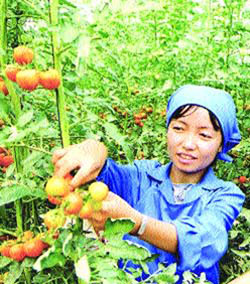 |
|
Greenhouse effect: Tomatoes are grown in a high-tech greenhouse at the Ha Noi Fruit and Vegetable Centre. The centre used technology fromIsraeli company NETAFIM to increase capacity by 6-7 times from outdoor crops, manage production and ensure food safety. |
The low yield of tuna industry shows an illustrative example of the consequences of not implementing advanced technology.
National tuna export revenue decreased by 7.2 per cent year-on-year to $526 million in 2013, according to the Viet Nam Association of Seafood Exporters and Producers (VASEP).
Exports to Japan, one of the world's largest tuna consumption markets, fell by 22 per cent; earnings tumbled by 17 per cent in the first half of this year compared with the same period of last year.
Japanese experts attributed the decrease to Viet Nam's outdated technique for catching and preserving the fish, which reduced its quality, cutting into prices.
A few producers, however, applied high-tech methods and achieved success. Last January, the Binh Dinh Province People's Committee invested VND1.5 billion ($70,700) to train and equip the crews of five fishing vessels with the help of the Binh Dinh Seafood Joint Stock Company and Japan's Kato Hitoshi General Company. They were provided with fishing rods, cold storage cellars and training courses on pre-processing and preservation of tuna at sea.
In August, the Binh Dinh fishing vessels used the new technology to catch their first batch of tuna. Japanese experts confirmed an increase in the quality of the tuna exports. VASEP expects other coastal provinces in Viet Nam to follow Binh Dinh's example.
Currently Viet Nam has 29 designated high-technology agricultural zones in 12 cities and provinces, including Ha Noi and HCM City as well as Hai Phong, Lam Dong and Hau Giang, according to the Ministry of Agriculture and Rural Development.
New technology will be used to grow vegetables, flowers, mushrooms, tea and other crops, resulting in production value of VND500 million ($23,600) to VND1 billion ($47,200) per hectare. By 2015, the ministry expects to create more such zones and for their production value to account for 10 to 15 per cent of the country's total.
"However, the operation of these zones remains limited because of the lack of incentives for investors," said Nguyen Van Tien, head of Agriculture and Rural Department under the Central Committee of the Economy.
|
Udder change: This automatic system of milking cows uses Israeli technology under a co-operation programme between the International Cooperation Office of Israel and the HCM City Agriculture and Rural Development Department. |
Dang Kim Son, director of the Strategic Institute of Agriculture and Rural Development, cited three factors preventing enterprises from using advanced technology: capital, farm land and infrastructure.
"The State should make more incentive policies in these areas to attract more investors to develop high-tech agriculture," said Son.
TH Group chairwoman Huong said that investors needed to use larger areas of farm land for 50 to 100 years and recommended that provinces and cities provide site clearance as an incentive for enterprises that invest in high technology.
|
Technology transfer: Japanese experts from Sakai City of Osaka Province inspect tuna caught by Vietnamese fishermen in Binh Dinh Province using high-tech methods from Japan. |
The State should also permit enterprises to rent land to farms that invest in high-technology agriculture, she said, adding that the authorities should withdraw land from enterprises that have not paid land-use taxes and use it for high-tech farming projects.
Because farming enterprises remain small in both scale and capitalisation, they found it difficult to get loans for high-tech projects, said Nguyen Van An, general director of Thai Hoa Viet Nam Group Joint Stock Company.
VNS/VNN

